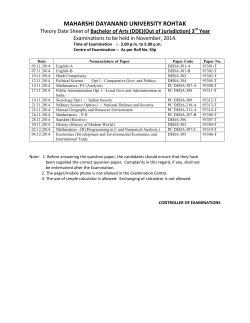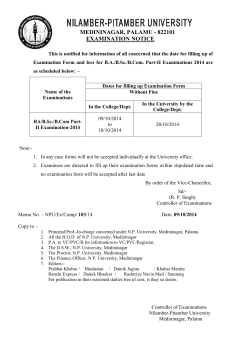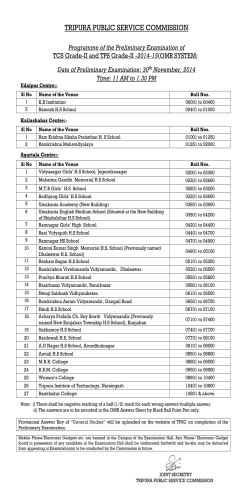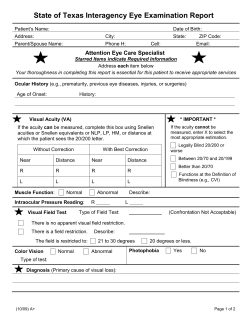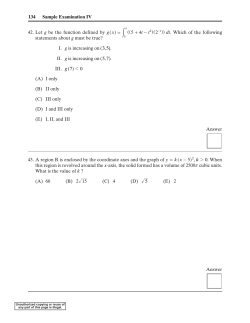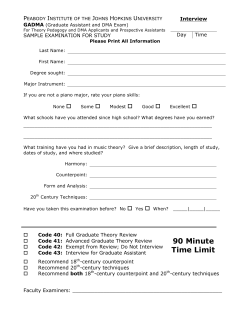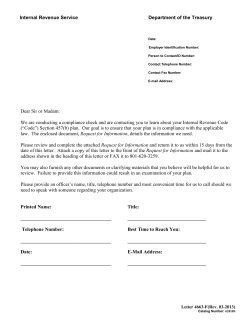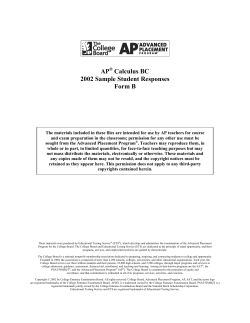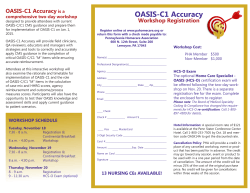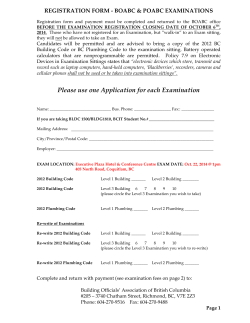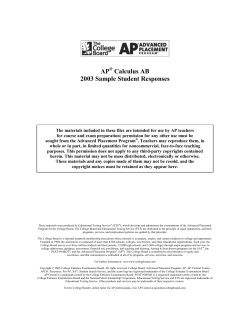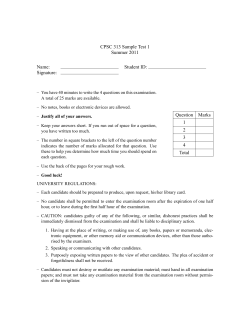
Introduction Results
3-year average score of IM-ITE, A Better Predictor for American Board of Internal Medicine Certification Examination Outcome Suthipong Soontrapa, Brandi Mckinnon, Charoen Mankongpaisarnrung, Ornwadee Siangpraipunt, Samuel Copeland, Zachary Mulkey, Michael Phy Department of Internal Medicine, School of Medicine, Texas Tech University Health Sciences Center, Lubbock, Texas Introduction Results Fail Frequency ITE SCORE Pass Prior IM-Training Frequency Pass Fail ITE-PGY2 We have shown that the 3Y-ITE can be used as a model to predict whether an Internal Medicine resident will successfully pass the ABIMCE with a high sensitivity and specificity. Application of this model could be instrumental to program directors in determining which residents are at risk of failing the exam; which would allow time for additional educational and faculty support for board preparation. Pass Frequency References Fail 1. Garibaldi RA, Subhiyah R, Moore ME, Waxman H. The In-Training Examination in Internal Medicine: an analysis of resident performance over time. Ann Intern Med 2002;137:505-10. 2. Grossman RS, Fincher RM, Layne RD, Seelig CB, Berkowitz LR, Levine MA. Validity of the in-training examination for predicting American Board of Internal Medicine certifying examination scores. J Gen Intern Med 1992;7:63-7. 3. Waxman H, Braunstein G, Dantzker D, et al. Performance on the internal medicine second-year residency intraining examination predicts the outcome of the ABIM certifying examination. J Gen Intern Med 1994;9:692-4. 4. Wang H, Nugent R, Nugent C, Nugent K, Phy M. A commentary on the use of the internal medicine intraining examination. Am J Med 2009;122:879-83. 5. Accreditation Council for Graduate Medical Education. Residency program training requirements. Available at: http://www.acgme.org ITE-PGY3 Frequency ** Limited data Conclusions & Discussion Frequency Fail Frequency Fail ITE-PGY1 USMLE 1 USMLE 2CK Pass Fail The ROC curves analysis showed areas under the curve are 0.817, 0.805, 0.816 and 0.850 for prediction of passing ABIMCE by using ITE-PGY1, ITEPGY2, ITE-PGY3 and 3-year average score of IM–ITE (3Y-ITE) respectively. The best cut-off values of > 55.83% Correct on the 3Y-ITE showed the best predictive value, with 87.5% sensitivity and 70.8% specificity. Frequency Fail Frequency Receiver operating characteristic curve analysis Frequency Fail USMLE 3 Pass Sex Age Fail Fail Frequency Fail Pass Fail Pass Frequency A total of 90 residents graduated during 2003-2012. Of these, 84 took the ABIMCE. The passing rate of ABIMCE for first-time takers was 77.8%. Pass Pass Frequency Pass Pass Frequency USMLE SCORE Results Fail Number of publication The objective of this study was to find a predictive tool based on IM-ITE score, regarding the probability of an internal medicine graduate passing the ABIM certification examination. We performed a retrospective review of Internal Medicine graduates’ performance on the Internal Medicine In-training Examination (IM-ITE) and ABIM certification examination (ABIMCE) who graduated from Texas Tech University Health Sciences Center Department of Internal Medicine in Lubbock Texas during the years of 2003-2012. A receiver operating characteristic (ROC) curve analysis was used to evaluate the predictive performance of IM-ITE score. Predictive performance of IM-ITE score was estimated using area under the ROC curve. Statistical analysis was performed using SPSS version 19. Pass 3Y-ITE Marital Status Pass Methods Fail US Graduate VS IMG Objective Pass Frequency MD VS DO Certification by the American Board of Internal Medicine (ABIM) is an important milestone and professional achievement for graduating Internal Medicine residents. To become certified internists, it is of paramount importance that residents meet the medical education training requirements, demonstrate clinical competence in the patient care and pass the board certification examination in Internal Medicine. Internal Medicine graduates must achieve an appropriate score on the board certification examination of the ABIM. Passing rate of least 80% for first-time takers in the most recently defined three-year period is important in order to maintain program accreditation. Fail Region where came from Pass Results Frequency
© Copyright 2026
